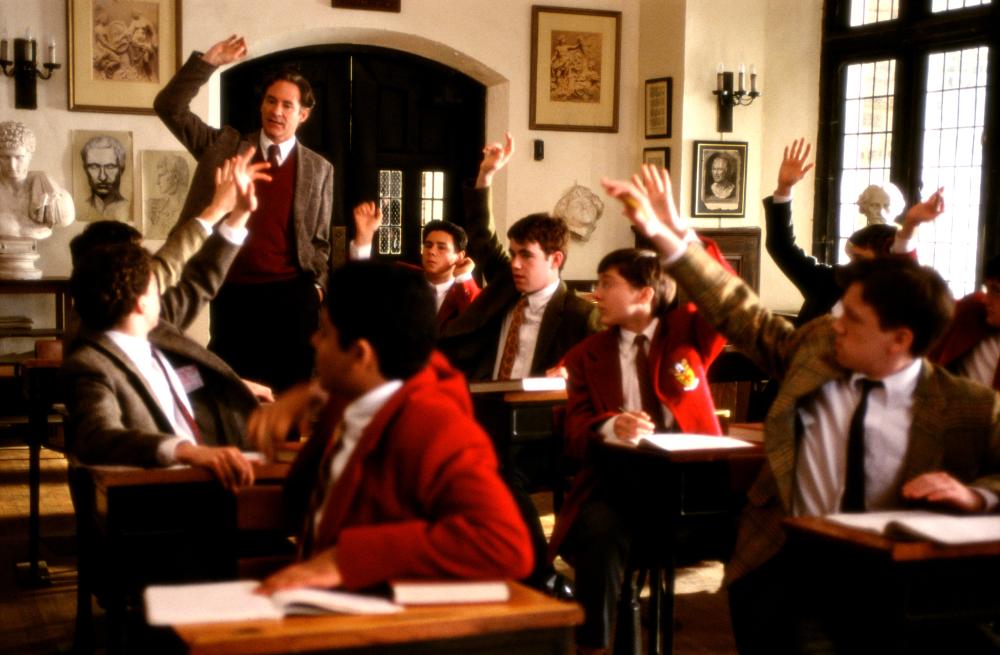The Emperor’s Club (2002)

I’m a little saddened to learn that the study of Classics hasn’t led me to become a leader of industry, politics or a corporation like so many of the fine students at the young boys school shown in The Emperor’s Club. Most of the time, when people heard that it was my major in college, I had to explain exactly what it was to them, only to be followed by a question as to how such a field is going to help me later in life. My glib response usually indicates that it will help me in that category if I ever appeared on “Jeopardy!,” but after seeing how much trivial information these kids know in this movie, I’m not even so sure about that anymore. Normally, this sort of film might depress me personally, but it is a work of fiction after all, based on a short story by Ethan Canin entitled “The Palace Thief.” I know it’s fiction because any professor worth his salt would probably not exalt the Roman emperors as the pillars of moral and ethical conviction that forms the premise for most of the thematic resonance that is The Emperor’s Club.
Kevin Kline stars as Classical professor William Hundert, who sees the life and times of Ancient Greece and Rome to be full of virtue and principle, and something for which he governs his own beliefs around in his everyday life. He enjoys his work because he not only gets to discuss that which he loves, but also because he gets to mold all of his students into becoming better people through the manner in which he instructs them. Enter Sedgewick Bell (Hirsch),the delinquent son of a prominent senator, who not only refuses to be molded, he also becomes a distraction and a bad influence for other boys in the class. A tug-of-war battle of wills forms between the professor that desires his students to have his values and the young miscreant who doesn’t want to conform, and Hundert questions the worthiness of himself as a teacher as a result.
We’ve all seen this kind of film done before in various forms, notably Dead Poets Society and Mr. Holland’s Opus, and to make this work there is much more emphasis that needs to be built around characters and believable drama, meant to inspire without seeming overly preachy or schmaltzy. No easy feat when dealing with such lofty issues as morality and the role of teachers in the instruction of young students. The Emperor’s Club impresses by delivering genuine drama without overcooking the issues with heavy-handed phoniness. It isn’t perfect, as there are some contrivances which occur now and then, and some of the plot points seem telegraphed much earlier than when they actually happen, but for the most part, things hold together well because the characters are three-dimensional and situations are always interesting.
Some may find the material too familiar to seem fresh, but fans of Kevin Kline should be very pleased with a terrific performance, and those who like inspiring drama will find much to like within the morally strong subject matter and themes. If only my own instructors could have been as engaging and interested in our well-being. This is a must-see for anyone in the teaching profession struggling with their own feelings of guilt over the one student that got away.
Qwipster’s rating: A-
MPAA Rated: PG-13 for some sexual content
Running Time: 108 min.
Cast: Kevin Kline, Emile Hirsch, Embeth Davidtz, Rob Morrow, Edward Herrmann, Jesse Eisenberg, Patrick Dempsey (cameo)
Director: Michael Hoffman
Screenplay: Neil Tolkin (based on the short story, “The Palace Thief”, by Ethan Canin)
